
NOVEMBER 2024 NEWSLETTER
The newsletter of the Feinberg School of Medicine Research Office
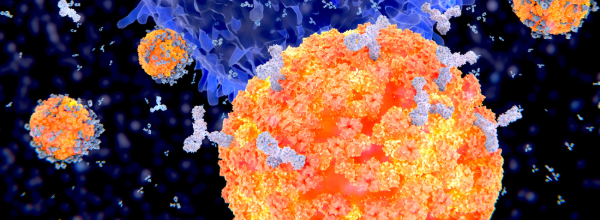 |
Accelerating Discoveries in Immunobiology Through Collaboration |
|
Just two years out from its launch, the Center for Human Immunobiology (CHI) has quickly become a bustling hub for collaborative efforts to understand the molecular mechanisms of the immune system and translate discoveries into innovative cures for immune-regulated diseases. |
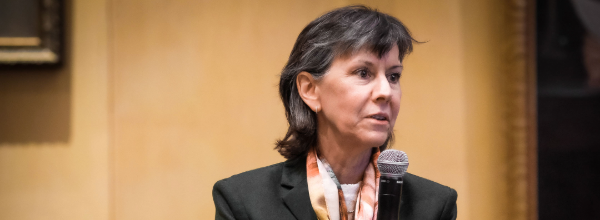 |
Celebrating 100 Years of The Journal of Clinical Investigation |
| Investigators from Northwestern University Feinberg School of Medicine and other academic and research institutions celebrated the 100-year anniversary of The Journal of Clinical Investigation during a day-long symposium in the Hughes Auditorium on October 18. |
Faculty ProfileHarnessing the Immune System to Treat Central Nervous System TumorsCatalina Lee-Chang, PhD, is an assistant professor of Neurological Surgery. Her lab is focused on elucidating fundamental aspects of the immunology of central nervous system tumors and developing novel immunotherapy strategies to tackle deadly and incurable tumors such as glioblastoma. |

|
Staff ProfileCollaborating to Enhance Departmental ResearchSara Beddow is a lab manager in the Department of Microbiology-Immunology and the MIMFlow Core Manager. She helps to advance research while also fostering community among lab managers through the Northwestern Lab Manager Group which she founded. |
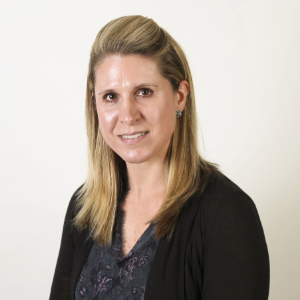
|
Student ProfileUnderstanding Mechanisms to Combat Antibiotic-resistant InfectionsSzu-Yu Kuan is a PhD student in the Driskill Graduate Program (DGP). In the laboratory of Mee-Ngan F Yap, PhD, associate professor of Microbiology-Immunology, Kuan studies bacterial pathogenesis, bacterial physiology and ribosomes. |

|
Campus Events |
||||||||
|
Research in the NewsChicago Magazine, October 29 WBEZ, October 26 New York Times, October 23 |
NUCATS CornerLeadership and Management Strategies for Clinical InvestigatorsLed by Kellogg faculty in an interactive classroom setting, Leadership and Management Strategies for Clinical Investigators is a highly successful collaboration between Kellogg and the NUCATS Institute held May 12-15, 2025. Participants in the four-day course are exposed to practical and effective approaches to topics including organizational culture, strategic time management, feedback and persuasion strategies, and diversifying funding sources. |
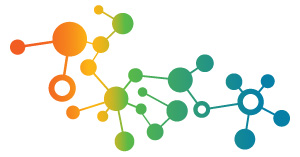
|
Sponsored ResearchUnderstanding Multilevel Predictors Affecting Family Formation Among Sexual and Gender Minority Couples
|

|
Sponsored ResearchPersonality Prediction of Dementia Risk and Progression
|
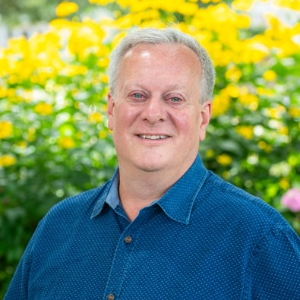
|
Breakthroughs PodcastEmerging Drug Targets in Parkinson's Disease with Joe Mazzulli, PhDNearly one million people in the US are living with Parkinson's disease, a condition for which there is still no known cause or cure. Joseph Mazzulli, PhD, has led two recent studies published in Neuron and Nature Communications uncovering previously unknown cellular mechanisms driving the disease. These studies highlight the potential for new therapeutic targets, including restoring neuronal function for patients with Parkinson's and other neurodegenerative diseases. |
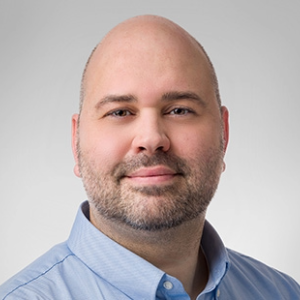
|
New FacultySteven P. Cohen, MDCohen recently joined Feinberg in July 2024 as Edmond I Eger Professor of Anesthesiology and vice chair of Pain Medicine with joint appointments in Physical Medicine and Rehabilitation, Neurology, Psychiatry and Neurological Surgery. Cohen has been active in pain research, having published over 450 peer-reviewed articles and book chapters in the past 20 years in some of the top medical journals and texts. His work includes the development of an FDA-approved denervation technique for treating sacroiliac joint pain (radiofrequency ablation), helping set up and gather data on the first pain clinic in a war zone, and inventing the IV ketamine test, serving as the senior investigator on the congressionally-mandated study evaluating compounded topical creams for chronic pain and much more. Cohen was previously professor of Anesthesiology and Critical Care Medicine, Neurology, Physical Medicine and Rehabilitation and Psychiatry and Behavioral Sciences at the Johns Hopkins School of Medicine and the director of the Blaustein Pain Treatment Center at Johns Hopkins. He is a retired colonel in the U.S. Army, recently chaired the largest medical conference in Ukraine since the war with Russia, and continues to serve as director of Pain Research at Walter Reed National Military Medical Center with joint appointments at the Uniformed Services University of the Health Sciences. |
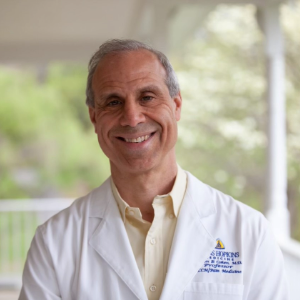
|
Galter LibraryUnderstanding the Impact of DataAs the scholarly community places more value on data sharing, datasets are increasingly recognized as "first-class research outputs." A well-constructed, discoverable and connected dataset can play a significant role in subsequent work – serving as trusted benchmarks, inspiring new studies or signaling knowledge translation. |
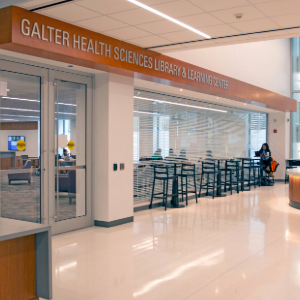
|
High Impact ResearchArseni D, Nonaka T, Jacobsen MH, Murzin AG, Cracco L, Peak-Chew SY, Garringer HJ, Kawakami I, Suzuki H, Onaya M, Saito Y, Murayama S, Geula C, Vidal R, Newell KL, Mesulam M, Ghetti B, Hasegawa M, Ryskeldi-Falcon B. Heteromeric amyloid filaments of ANXA11 and TDP-43 in FTLD-TDP type C. Nature. October 2024; 634(8034):662-668. Asadollahi E, Trevisiol A, Saab AS, Looser ZJ, Dibaj P, Ebrahimi R, Kusch K, Ruhwedel T, Möbius W, Jahn O, Lee JY, Don AS, Khalil MA, Hiller K, Baes M, Weber B, Abel ED, Ballabio A, Popko B, Kassmann CM, Ehrenreich H, Hirrlinger J, Nave KA. Oligodendroglial fatty acid metabolism as a central nervous system energy reserve. Nature Neuroscience. October 2024; 27(10):1934-1944. Carrico AW, Ryan DT, Berona J, Dominguez BS, Schrock JM, McDade TW, Newcomb M, D'Aquila RT, Mustanski B. HIV, inflammation, and initiation of methamphetamine use in sexual and gender minorities assigned male at birth. Proceedings of the National Academy of Sciences of the United States of America. October 2024; 121(41):e2407046121-e2407046121. Ciatti JL, Vázquez-Guardado A, Brings VE, Park J, Ruyle B, Ober RA, McLuckie AJ, Talcott MR, Carter EA, Burrell AR, Sponenburg RA, Trueb J, Gupta P, Kim J, Avila R, Seong M, Slivicki RA, Kaplan MA, Villalpando-Hernandez B, Massaly N, Montana MC, Pet M, Huang Y, Morón JA, Gereau RW, Rogers JA. An autonomous implantable device for the prevention of death from opioid overdose. Science Advances. October 2024; 10(43):eadr3567-eadr3567. |
Featured CoreStem Cell Core FacilityThe mission of the Stem Cell Core Facility is to enable scientists at Northwestern to conduct stem cell research, particularly with induced pluripotent stem cells (iPSCs). Patient-specific iPSCs offer unprecedented opportunities to study human developmental processes and disease, using human stem cell-derived somatic cells under each person’s unique genetic constellation. They also represent a unique and very important source of cells for cell replacement therapy. The facility offers reprogramming of primary cells, including fibroblasts and peripheral blood mononuclear cells (PBMCs). We offer a number of scientific services, including training, project consultation, cell banking and access to our facility. Services Provided
|
NIH NewsUsing Artificial Intelligence and Other Digital Technologies to Enhance Grant Management Operations NIH reviewed over 75,000 applications in fiscal year 2023. One way NIH referral staff identify potential study sections to assign these many applications to is using the AI-based Automated Referral Tool. It is a useful tool to assist NIH receipt and referral staff when making decisions about the referral of applications to the appropriate review branches. NIH is carefully exploring how AI and other related technologies may make NIH’s grant operations more robust, innovative and flexible. NIH will continue testing and refining these analytical tools’ accuracy to help improve grants management operations, save time and enhance stewardship of financial resources. Reaffirming NIH’s Commitment to Scientific Integrity The Final NIH Scientific Integrity Policy is now available. The final policy incorporates and is responsive to the principles and directives of the Presidential Memorandum on Restoring Trust in Government Through Scientific Integrity and Evidence-Based Policymaking, Protecting the Integrity of Government Science and A Framework for Federal Scientific Integrity Policy and Practice. The end goal of these efforts was to institutionalize a culture of scientific integrity across the federal government by requiring that agencies either develop or update their existing policies. The areas NIH sought to strengthen their existing system are articulated in the final policy and include:
|
Funding Opportunities
|
Thank You For ReadingWe welcome your feedback. Please share it with us via email. |
|
|
